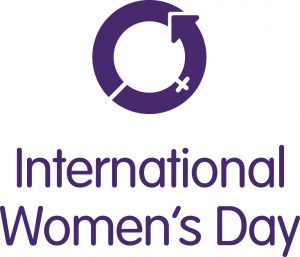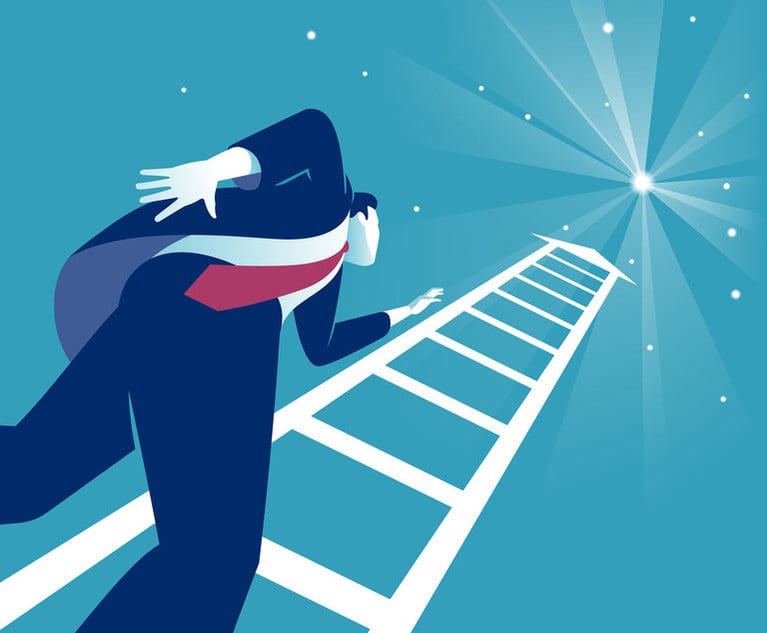Why we're writing about men on International Women's Day
Focusing on men on International Women's Day may sound counter-intuitive, but here's why we're doing just that
March 08, 2018 at 08:02 AM
3 minute read
 For more than 100 years, International Women's Day has celebrated the achievements of women and pushed for gender parity. But this year, we've chosen to focus our main feature on the role that men need to play in actually achieving this within the legal profession.
For more than 100 years, International Women's Day has celebrated the achievements of women and pushed for gender parity. But this year, we've chosen to focus our main feature on the role that men need to play in actually achieving this within the legal profession.
Some may question why we are taking this approach, when men already have ample opportunity to get their voice heard within the profession. The answer to this is quite simple – as men hold the vast majority of leadership roles within law firms, the onus has got to be on them to drive real change.
However, as the revelations of recent months have highlighted, men have clearly been a large part of the problem when it comes to the progress of women in law – as in other industries. Witness the sexual assault scandal at Baker McKenzie, or our survey which found that some two thirds of female lawyers have experienced sexual harassment while working within law firms.
But now it's time for men to be part of the solution, and more and more firms are waking up to this fact – as acknowledged by many of those spoken to for today's feature.
Yes, law absolutely needs more female role models at partnership, and especially leadership, level. A lot more. The fact the magic circle firms look no closer to having a female managing or senior partner between them now than they did when I joined Legal Week 12 years ago remains a depressing reality. Even more depressing is Ashurst partner Simon Beddow's assertion that little has changed in his 29 years in the profession.
But while the number of female role models remains far smaller than it should be, male partners have a duty to help rectify the problem.
During the coming days, we will be running a series of Q&A interviews between mentors and mentees looking at just that. From partners at Allen & Overy to DLA Piper, growing numbers of male partners are attempting to understand what it is really like to walk in the shoes of a more junior female lawyer.
It's likely that each change that results from these efforts will not sound radical. Changing work allocation so that it isn't biased, rethinking networking opportunities and ensuring access to coaching and mentoring, for example, do not sound the most groundbreaking ideas in the world.
But, little by little, they will help. On the back of movements like #MeToo, Time's Up and, to a lesser extent, the attention brought through the new gender pay gap reporting requirements, there has never been as good a time as now to press for progress.
There's still a long way to go before law achieves anything close to gender parity, but at least firms are now moving on from empty platitudes to more tangible initiatives. And the fact that some clients are starting to hold them to account if they don't deal with the disparity will clearly help.
So let's hope we're not still having this debate in another 12 years, and that at some point soon the patronage of men will no longer be necessary for women to reach the heights they deserve.
This content has been archived. It is available through our partners, LexisNexis® and Bloomberg Law.
To view this content, please continue to their sites.
Not a Lexis Subscriber?
Subscribe Now
Not a Bloomberg Law Subscriber?
Subscribe Now
NOT FOR REPRINT
© 2025 ALM Global, LLC, All Rights Reserved. Request academic re-use from www.copyright.com. All other uses, submit a request to [email protected]. For more information visit Asset & Logo Licensing.
You Might Like
View All
“I Bought a £20 Suit From eBay”: How a Social Mobility Scheme Helped Launch a Paul Weiss Associate’s Career
6 minute read
Norton Rose Sues South Africa Government Over 'Unreasonable' Ethnicity Score System
3 minute read
'I Was Getting Straight Nos From Absolutely Everyone': How a Tetraplegic Linklaters Lawyer Defied All Odds
6 minute read
Trending Stories
- 1Parties’ Reservation of Rights Defeats Attempt to Enforce Settlement in Principle
- 2ACC CLO Survey Waves Warning Flags for Boards
- 3States Accuse Trump of Thwarting Court's Funding Restoration Order
- 4Microsoft Becomes Latest Tech Company to Face Claims of Stealing Marketing Commissions From Influencers
- 5Coral Gables Attorney Busted for Stalking Lawyer
Who Got The Work
J. Brugh Lower of Gibbons has entered an appearance for industrial equipment supplier Devco Corporation in a pending trademark infringement lawsuit. The suit, accusing the defendant of selling knock-off Graco products, was filed Dec. 18 in New Jersey District Court by Rivkin Radler on behalf of Graco Inc. and Graco Minnesota. The case, assigned to U.S. District Judge Zahid N. Quraishi, is 3:24-cv-11294, Graco Inc. et al v. Devco Corporation.
Who Got The Work
Rebecca Maller-Stein and Kent A. Yalowitz of Arnold & Porter Kaye Scholer have entered their appearances for Hanaco Venture Capital and its executives, Lior Prosor and David Frankel, in a pending securities lawsuit. The action, filed on Dec. 24 in New York Southern District Court by Zell, Aron & Co. on behalf of Goldeneye Advisors, accuses the defendants of negligently and fraudulently managing the plaintiff's $1 million investment. The case, assigned to U.S. District Judge Vernon S. Broderick, is 1:24-cv-09918, Goldeneye Advisors, LLC v. Hanaco Venture Capital, Ltd. et al.
Who Got The Work
Attorneys from A&O Shearman has stepped in as defense counsel for Toronto-Dominion Bank and other defendants in a pending securities class action. The suit, filed Dec. 11 in New York Southern District Court by Bleichmar Fonti & Auld, accuses the defendants of concealing the bank's 'pervasive' deficiencies in regards to its compliance with the Bank Secrecy Act and the quality of its anti-money laundering controls. The case, assigned to U.S. District Judge Arun Subramanian, is 1:24-cv-09445, Gonzalez v. The Toronto-Dominion Bank et al.
Who Got The Work
Crown Castle International, a Pennsylvania company providing shared communications infrastructure, has turned to Luke D. Wolf of Gordon Rees Scully Mansukhani to fend off a pending breach-of-contract lawsuit. The court action, filed Nov. 25 in Michigan Eastern District Court by Hooper Hathaway PC on behalf of The Town Residences LLC, accuses Crown Castle of failing to transfer approximately $30,000 in utility payments from T-Mobile in breach of a roof-top lease and assignment agreement. The case, assigned to U.S. District Judge Susan K. Declercq, is 2:24-cv-13131, The Town Residences LLC v. T-Mobile US, Inc. et al.
Who Got The Work
Wilfred P. Coronato and Daniel M. Schwartz of McCarter & English have stepped in as defense counsel to Electrolux Home Products Inc. in a pending product liability lawsuit. The court action, filed Nov. 26 in New York Eastern District Court by Poulos Lopiccolo PC and Nagel Rice LLP on behalf of David Stern, alleges that the defendant's refrigerators’ drawers and shelving repeatedly break and fall apart within months after purchase. The case, assigned to U.S. District Judge Joan M. Azrack, is 2:24-cv-08204, Stern v. Electrolux Home Products, Inc.
Featured Firms
Law Offices of Gary Martin Hays & Associates, P.C.
(470) 294-1674
Law Offices of Mark E. Salomone
(857) 444-6468
Smith & Hassler
(713) 739-1250








